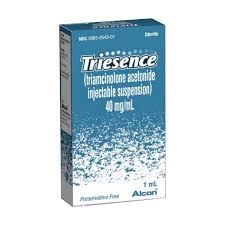A recent study published in the British Journal of Ophthalmology by Dr. Richard Kaplan, Dr. Sonal S Chaugule, and Dr. Paul Finger introduces a new treatment option for patients with radiation macular degeneration that no can no longer be controlled with maximum, standard anti-VEGF medication.
Radiation macular degeneration is the most common cause of permanent vision loss in patients treated with plaque or proton radiation for intraocular “choroidal” melanoma. Without treatment, radiation macular degeneration causes substantial vision loss in up to two-thirds of patients at 10 years after their initial radiation therapy.
Dr. Finger’s recently published 10-year study showed that intraocular injections of anti-VEGF medications (Avastin, Lucentis) were effective in preserving vision 80% of patients. However, despite maximum doses of these medications, some patients experience progression of their macular disease.
The recently published study focused on patients who were not responding to maximum doses of anti-VEGF medication. They treated by adding 4 mg of periodic intraocular triamcinolone acetonide (a steroid injection) to continued maximum anti-VEGF injections.
Kaplan and colleagues noted that adding steroid injections, stabilized or improved vision in 100% of patients at 3 months, 88% at 6 months, 88% at 9 months and 75% at 12 months. A side effect of increased eye pressure after starting the steroid injections was noted in 2 patients. However, the steroid-induced glaucoma was controlled with eye drop medications in both cases. One patient had progression of cataract.
The study authors concluded that intraocular triamcinolone steroid injection is an exciting new option to for patients who no longer respond to maximum, standard anti-VEGF treatment.











[…] patients whose loss of vision can no longer be controlled with maximum, standard anti-VEGF therapy. To read more on the findings of this paper and its effect on eye cancer patients, click here. And to read this paper in full, published in the British Journal of Ophthalmology, click […]